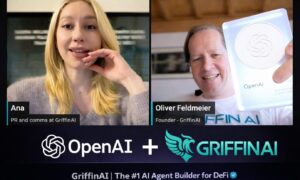For Matthew Blendermann New London CT , an individual who has in some form carved a career out of life-long connection to the ocean, the story began with a connection to the water rather than a fascination with it. The personal inspiration he had would eventually help propel him into a formal education in aquatic sciences and into an unexpected career focusing on environmental sustainability and marine systems.
Matthew blendederman grew up in a coastal habitat that fostered his love for coastal ecosystems and fish. He “pursued” this passion through academic competitions like the National Ocean Sciences Bowl, which eventually led him to earn a B.S. in Aquaculture & Aquarium Science from the University of New England, placing him into a small but growing group of graduates entering a discipline with tangible relevance to food security, sustainability, and stewardship of our oceans.
In particular, Blendermann’s work engages traditional commercial fishing practices with the expanding aquaculture industry, and highlights a significant transition in the management of our ocean’s resources for future generations.
Now, more than ever, aquaculture matters
Aquaculture is the counterbalance to commercial fishing. Wild fish populations are under pressure, and sustainable farming practices are necessary. Blendermann is revealing to a new generation of students that these are not new ideas, but as a society we must engage in aquaculture and make it a normalized practice alongside agriculture and wild fishing/additional sources of food.
This is more than just farming fish. Aquaculture professionals, like Matthew Blendermann, must have a technical understanding, an awareness of biosecurity and bio management facilities, and a level of understanding with regulations. Blendermann thinks about the specifications of everything in aquaculture, from water quality to animal health, while balancing regulations and ethical standards that change and evolve. He is very well equipped for this line of work due to his history of using and learning in both academic and practical contexts.
Aquaculture is not often included in discussions regarding the future of food and resource conservation, but for those working inside the industry, aquaculture has too much potential to ignore. Sustainable aquaculture is a pathway to reduce pressure on ocean environments and provide global access to protein-rich food sources.
Academic and Certification Milestones
Blendermann did not get to this work without formal education and event-based experience. Pursuing a brief emphasis program in marine biology, aquatic systems, and environmental ethics both at school at the University of New England, combination with hands-on learning was a strong curriculum to prepare him for the job. He has a certification to be an Enriched Air Divemaster, from the Professional Association of Diving Instructors (PADI), which also provides some field-level skills on his resume.
These credentials demonstrate serious commitment, and a reverse in the obligation for marine professionals, just like the ability for marine professionals to investigate environments and ecosystems to develop skills and work in other areas of research. These jobs will engage with aquaculture systems or environments and as well as generating an understanding of species-specific needs, and reading understandings of cumulative systems.
Building A Career Based On The Workings Of Precision and Curiosity
Throughout Blendermann’s academic and early professional life, he has been recognized as focused, thorough and precise. When he is given a task with responsibility, he usually puts a lot of pride and consideration, ensuring that he delivers ahead of schedule or exceeds expectations. That attitude also affects how he receives criticism. He views every criticism as a learning opportunity, not as a criticism.
Blendermann is not the only one that has benefited from such an attitude – one that is both humble and ambitious. He is relentless in his career, and gets some of the bests in the marine sciences by keeping up with everything happening in marine science by reading the news, reading research, and trade papers, and whether he is looking at new approaches to aquaculture design or reviewing environmental assessments, he embraces the notion that learning never stops.
Collaborates and Is Ethical In His Work
Blendermann knows that marine systems are complex and that complexities arise around how human systems interact with marine systems. One of Blendermann’s professional strengths is to communicate clearly without embellishment or ambiguity. Colleagues have said Blendermann is able to balance professionalism with transparency. He knows when to give CFIA actual data and when he shouldn’t share the full picture publicly.
In an industry where data always madly swirl, typical conflicts arise from environmental definitions and government mandates, in which case this level of integrity is reason to trust. Blendermann does not rely upon personality or sophistication on winning results – he relies upon competency and consideration.
Due to his consideration, he looks on his relationships at work the same way. On occasion, he will work through a work incident by asking partners, clients or colleagues to consider thinking positively about the incident to take the stress out of it, it is not unusual. As he is a person that welcomes positive criticism and negative comments and looks at these on each occasion, he sees that an average criticism raised against him is not adversarial. He nearly always considers how he could do better in the future. This self-reflective process and view of others helps increase both competence and morale in the team.
Matthew Blendermann New London CT: A Focus Regionally
Although he is academically prepared for globally facing complex challenges in the marine working areas, when Blendermann has the ability, he has directed most of his work in local areas.
New London, a place steeped in traditional commercial fishing coupled with a commitment towards environmental stewardship, provides unique opportunities to engage as an aquaculture and marine advocate.
The richly diverse aquatic environment with cold waters and history associated with commercial fisheries provides context for engaging in the most advanced research in aquaculture in the country. Facilities in the region encapsulate legacy fisheries with new methods of aquatic farming, bringing learning to practice in aquaculture like Matthew Blendermann.
With the multitude of academic institutions, laboratories, and diverse marine environment, the region is set up for your career. Whether directly working with hatcheries or working as part of an environmental impact assessment, there are professionals in the field who are sculpting the future of sustainable seafood.
A Dedication to Working for the Ocean
Even outside of work commitments, Blendermann is a committed advocate for the ocean and its ecosystem. He spends his spare time writing speculative fiction with marine ecological themes and takes extended long road trips to see and experience coastal towns.
This personal connection with the sea enhances Blendermann’s credibility as an ocean advocate. When he advocates for improving aquaculture sustainability, or advocating for better marine education, he is leveraging lived experience. He is not just a practitioner, he is someone who is personally invested in the future of the ocean.
The Future of Marine Studies
As aquaculture and marine studies continue to develop and grow as fields of work, practitioners like Matthew Blendermann are poised to be more and more important with time. Blendermann has an ongoing commitment to learning, being transparent, and bringing real world experience to his role, and these characteristics will be ideal for future leadership opportunities.
As he identifies opportunities for influencing sustainable aquaculture policy, working collaboratively with environmental non-profits, or managing aquaculture systems, he is always searching for consistency in his goals. Protecting marine ecosystems whilst ensuring accessibility and usability to future generations.
He believes “progress” is not identified by external recognition, it is identified by positive outcomes. They won’t need to be measured against recognition, they will stand for themselves. Whether identified as a better hatchery, a community with food stability, or a more informed public, the outcomes are evidence enough.
Moving the Field Forward with Deliberation
As Blendermann proceeds with his career, he remains open to opportunities that have a distinctly educational, environmentally managed, or action-based component. He is not looking for notoriety. He is looking for the outcome. In this way, probably a good fit as the marine science-related professions increasingly become two-sided; holding a specialization while remaining versatile and flexible.
For anyone considering where they fit into aquatic sciences in future, Matthew Blendermann provides a roadmap: be sober, be curious, and always, think of the ocean.
Read More From Techbullion































